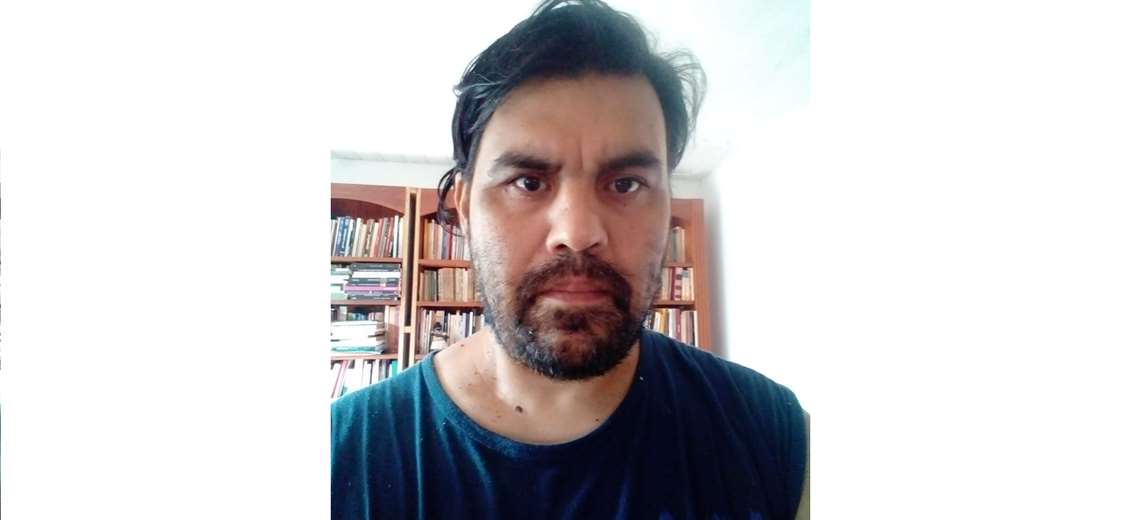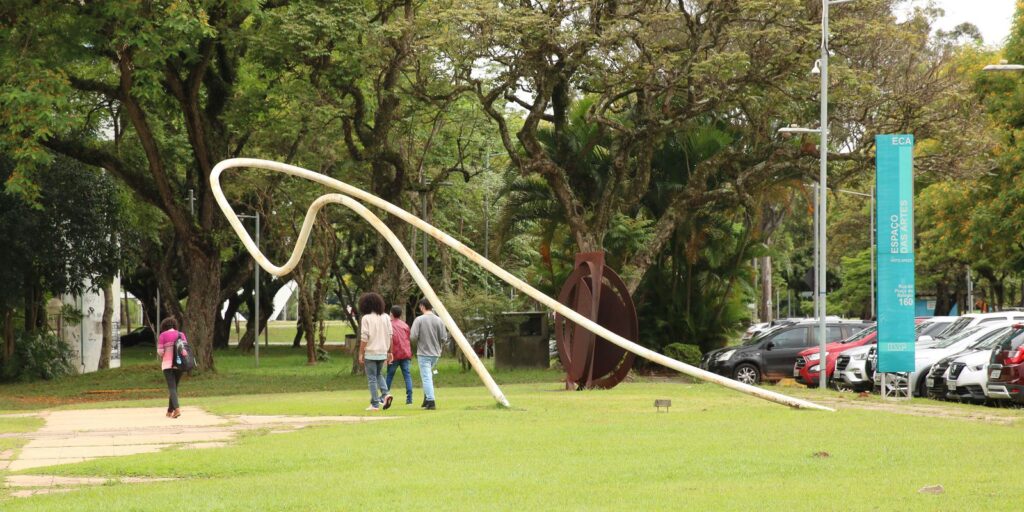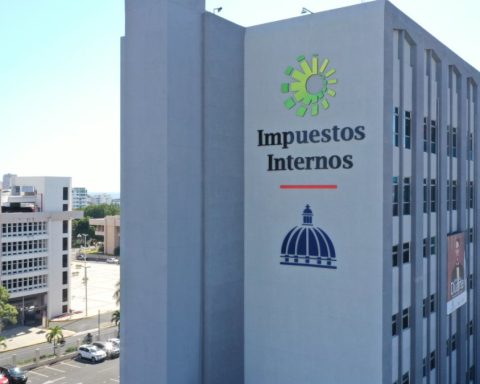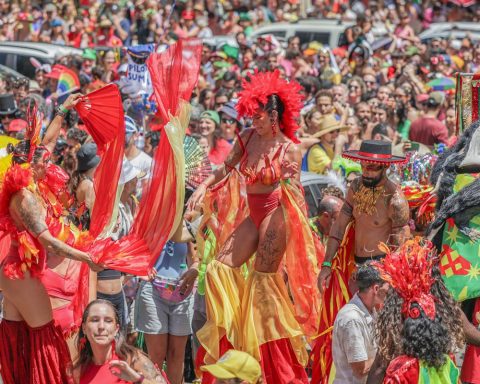This Wednesday the Fair of the Independent Edition Enjambre de Libros is inaugurated. One of the main guests will be the Argentine author of Paraguayan descent Mario Castells, who will give the keynote address on Friday From Ñande Reko to Teko Paraguay: Paraguayan Literature of Guarani Expressionat 6:00 p.m. in the audiovisual room of the Center for Plurinational Culture.
In the care of the Guarani
Castells, born in Rosario, is a novelist, chronicler, poet and translator. The author of the novel The must and the queresa commented that currently the production of literature in Guarani in Paraguay is very high. “Besides, Guarani literature has been at the top in Paraguay for about 20 years. The best books of the last time are in Guarani. Since Carlos Martínez Gamba won the National Prize for Literature in 2003 with a book that is as important to me as I the supremethat it’s called Ñorairõ Ñemombe’u Gérra Guasúrõ Guare (Rhymed Chronicles of the Battles of the Great War)”, explained Castells.
“Today in Paraguay there is a boom in the novel in Guarani, which was the only genre that had not yet been cultivated in this language,” said Castells, who indicated that in Paraguay Guarani literature began with the War of the Triple Alliance ( 1864-1870), when two war newspapers appeared that were written in Guarani.
“After that there was a great production in popular poetry and theater, very prolific and in opposition to the war. Later, in the mid-1950s, with the emergence of the anthropologist León Cadogan and his compilation of the original songs, a new poetry appeared. It was as if Paraguayan literature had found avant-garde poetry but not looking towards Europe but looking towards itself. It was what is known as tangara poetry. Tangara is a dance of the native nations and from this dance model, from this rhythmic model, a new poetry arises, a wonderful poetry”, Castells pointed out.
Finally, continued the author, comes the novel. “In the 1970s, narrative appeared, mainly with Carlos Martínez Gamba, who, living in Buenos Aires, wrote his first books in Guaraní, in cardboard editions, anticipating with this model the cardboard box phenomenon that exploded in 2001,” Castells said.
The novel, from being a genre little explored in Guarani, in the In the last three or four years, nearly ten titles have been published in this language.
The strength of the Guarani
For Castells, whose Paraguayan parents went into exile in Argentina in the 1970s, Guaraní is a literature that is not as prolific as that of Spanish, but it is a fairly strong literature, which already has many readers and critics in Paraguay. And today there is a whole phenomenon of debate about Guarani and the translation.
“In the beginning there was a whole purist gesture, a gesture of not translating, of saying ‘well, whoever wants to read should learn Guarani’, but luckily there are several writers, poets, among them the most outstanding is Susy Delgado, who was the one who put the question of self-translation very strongly. After that, I think that taking the debate won by Susy, Tadeo Zarratea began to do the same, also Feliciano Acosta Alcarraz, Miguelángel Meza. There was a whole process of writers, poets, narrators, who opted for the translation of themselves and for the translation of others”, said Castells.
This good ‘health’ of the Guaraní in literature has its counterpart in the Paraguayan population that is stopping speaking it, explained Castells. “The phenomenon of ‘hispanization’, of Castilianization in large cities is a problem that must be reversed in Paraguay. For 15 years, Spanish has grown a lot in the cities, there are many more people who do not speak Guarani. In a percentage of 3%, the population that is monolingual in Spanish grew to 10%. It is a growing phenomenon and it is a phenomenon that must be combated. And the government is not doing much to prevent this,” Castells said.
Profile
Mario Castells was born in Rosario in 1975. He published the essay Rafael Barrett, libertarian humanism in Paraguay in the liberal era (in collaboration with Carlos Castells, 2010), the poems Fiscal de sangre (signed with the heteronym Juan Ignacio Cabrera, La Pulga Renga, Rosario, 2011), the nouvelle El mosto y la queresa and Diario de un albañil (chronicles).
This Wednesday the Fair of the Independent Edition Enjambre de Libros is inaugurated. One of the main guests will be the Argentine author of Paraguayan descent Mario Castells, who will give the keynote address on Friday From Ñande Reko to Teko Paraguay: Paraguayan Literature of Guarani Expressionat 6:00 p.m. in the audiovisual room of the Center for Plurinational Culture.
In the care of the Guarani
Castells, born in Rosario, is a novelist, chronicler, poet and translator. The author of the novel The must and the queresa commented that currently the production of literature in Guarani in Paraguay is very high. “Besides, Guarani literature has been at the top in Paraguay for about 20 years. The best books of the last time are in Guarani. Since Carlos Martínez Gamba won the National Prize for Literature in 2003 with a book that is as important to me as I the supremethat it’s called Ñorairõ Ñemombe’u Gérra Guasúrõ Guare (Rhymed Chronicles of the Battles of the Great War)”, explained Castells.
“Today in Paraguay there is a boom in the novel in Guarani, which was the only genre that had not yet been cultivated in this language,” said Castells, who indicated that in Paraguay Guarani literature began with the War of the Triple Alliance ( 1864-1870), when two war newspapers appeared that were written in Guarani.
“After that there was a great production in popular poetry and theater, very prolific and in opposition to the war. Later, in the mid-1950s, with the emergence of the anthropologist León Cadogan and his compilation of the original songs, a new poetry appeared. It was as if Paraguayan literature had found avant-garde poetry but not looking towards Europe but looking towards itself. It was what is known as tangara poetry. Tangara is a dance of the native nations and from this dance model, from this rhythmic model, a new poetry arises, a wonderful poetry”, Castells pointed out.
Finally, continued the author, comes the novel. “In the 1970s, narrative appeared, mainly with Carlos Martínez Gamba, who, living in Buenos Aires, wrote his first books in Guaraní, in cardboard editions, anticipating with this model the cardboard box phenomenon that exploded in 2001,” Castells said.
The novel, from being a genre little explored in Guarani, in the In the last three or four years, nearly ten titles have been published in this language.
The strength of the Guarani
For Castells, whose Paraguayan parents went into exile in Argentina in the 1970s, Guaraní is a literature that is not as prolific as that of Spanish, but it is a fairly strong literature, which already has many readers and critics in Paraguay. And today there is a whole phenomenon of debate about Guarani and the translation.
“In the beginning there was a whole purist gesture, a gesture of not translating, of saying ‘well, whoever wants to read should learn Guarani’, but luckily there are several writers, poets, among them the most outstanding is Susy Delgado, who was the one who put the question of self-translation very strongly. After that, I think that taking the debate won by Susy, Tadeo Zarratea began to do the same, also Feliciano Acosta Alcarraz, Miguelángel Meza. There was a whole process of writers, poets, narrators, who opted for the translation of themselves and for the translation of others”, said Castells.
This good ‘health’ of the Guaraní in literature has its counterpart in the Paraguayan population that is stopping speaking it, explained Castells. “The phenomenon of ‘hispanization’, of Castilianization in large cities is a problem that must be reversed in Paraguay. For 15 years, Spanish has grown a lot in the cities, there are many more people who do not speak Guarani. In a percentage of 3%, the population that is monolingual in Spanish grew to 10%. It is a growing phenomenon and it is a phenomenon that must be combated. And the government is not doing much to prevent this,” Castells said.
Profile
Mario Castells was born in Rosario in 1975. He published the essay Rafael Barrett, libertarian humanism in Paraguay in the liberal era (in collaboration with Carlos Castells, 2010), the poems Fiscal de sangre (signed with the heteronym Juan Ignacio Cabrera, La Pulga Renga, Rosario, 2011), the nouvelle El mosto y la queresa and Diario de un albañil (chronicles).
;















